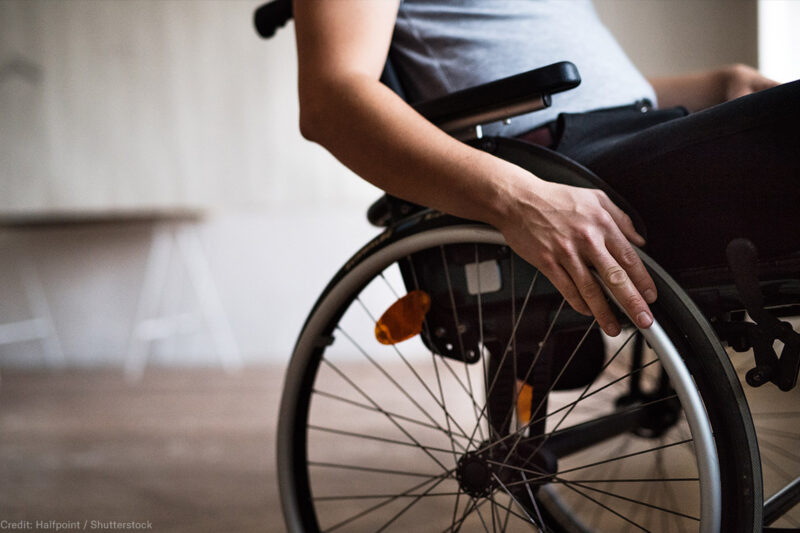The EMPOWER Care Act Would Give People With Disabilities the Freedom They Deserve


On Wednesday, the House Energy & Commerce Health Subcommittee will consider the , bipartisan legislation to re-authorize the program, which helps people with disabilities move from institutions into the community.
MFP is little known outside of the disability community, but it has been an extremely successful Medicaid program that has helped over 75,000 people with disabilities from 47 states leave institutions and move back into their own homes. It was enacted in 2005 with strong bipartisan support.
MFP was designed to help states transition people with disabilities from institutions into the community as well as to increase access to home- and community-based services. As executive director of the , which administers the stateŌĆÖs MFP program, I've seen the program do wonders for people. Unfortunately, the program expired September 30, 2016, and states are running out of funding despite the work left to be done. Congress must provide funding for this important work to continue.
Most people, regardless of their age, prefer to live in their own homes and not be stuck in a nursing home or institution for the rest of their life. Take Kelly N. for example. She is only 47 and a mom of a 16-year-old son. Kelly has multiple sclerosis and, as a result of her disability, she was sent to a nursing home two hours from her home and family. Kelly desperately wanted and needed to spend more time with her son, but because of the distance, they didnŌĆÖt see each other very often.
Kelly was stuck in the nursing home hours from her family for three years until Kelly got assistance from Open Doors, a program in New York state funded by the MFP program, which reaches out to people in nursing homes and other institutions that have indicated they would like to leave and return home. The program provides people in nursing homes and institutions with objective information on the home- and community-based services that are available to them and helps to facilitate their transition back to their community if they so choose.
The MFP program helped Kelly to move into her motherŌĆÖs home with the services she needed, including a ramp to the house, giving her the freedom to come and go as she likes. She is now able to spend much more time with her son and two poodles. Kelly now has her life back, but she would likely still be stuck in the nursing home, isolated from her family without that assistance.
The MFP program has had great success in New York. Since January 2015, over 2,500 people with disabilities and older adults living in the state have left institutions and moved back home using MFP funds. Without the program, people like Maureen H. ŌĆö a 76-year-old fiercely independent woman ŌĆö would likely have lived out the rest of her life stuck in a nursing home. Before she got help from MFP, Maureen was trapped in a nursing home for more than two years following a hospitalization and amputation of her left leg due to a severe car accident.
With help, Maureen transitioned into her own accessible apartment with the needed supports and services. When the main door proved too heavy for Maureen, staff funded by MFP assisted the landlord with securing funding to install a door opener. Maureen has been living independently now for 3 years, loves her freedom and independence, and says she is not afraid to go out by herself.
The MFP program, however, is still desperately needed. We know from federal data that there are currently around 22,000 New Yorkers living in nursing facilities who have expressed an interest in returning to their communities. And in our role running New YorkŌĆÖs MFP program, weŌĆÖve received over 9,500 referrals since the program began and are currently actively assisting over 1,500 individuals. Every day people unexpectedly end up in a nursing home or other institutional setting, whether because of their health, disability, or an unexpected event, such as in the case of Maureen.
And without assistance to navigate the various service systems, itŌĆÖs easy to get stuck. People often lose their homes during an unexpected institutionalization, or they are not aware of the services available to them in the community and are uncertain of their ability to live independently again.
This is why we need Congress to save MFP, which funds 47 state programs like ours across the country. The EMPOWER Care Act is bipartisan legislation that would do just that. Congress must pass the EMPOWER Care Act to ensure that this vital pipeline to freedom continues to exist for the hundreds of thousands of people with disabilities still languishing in institutions.
Lindsay Miller is the executive director of the .


